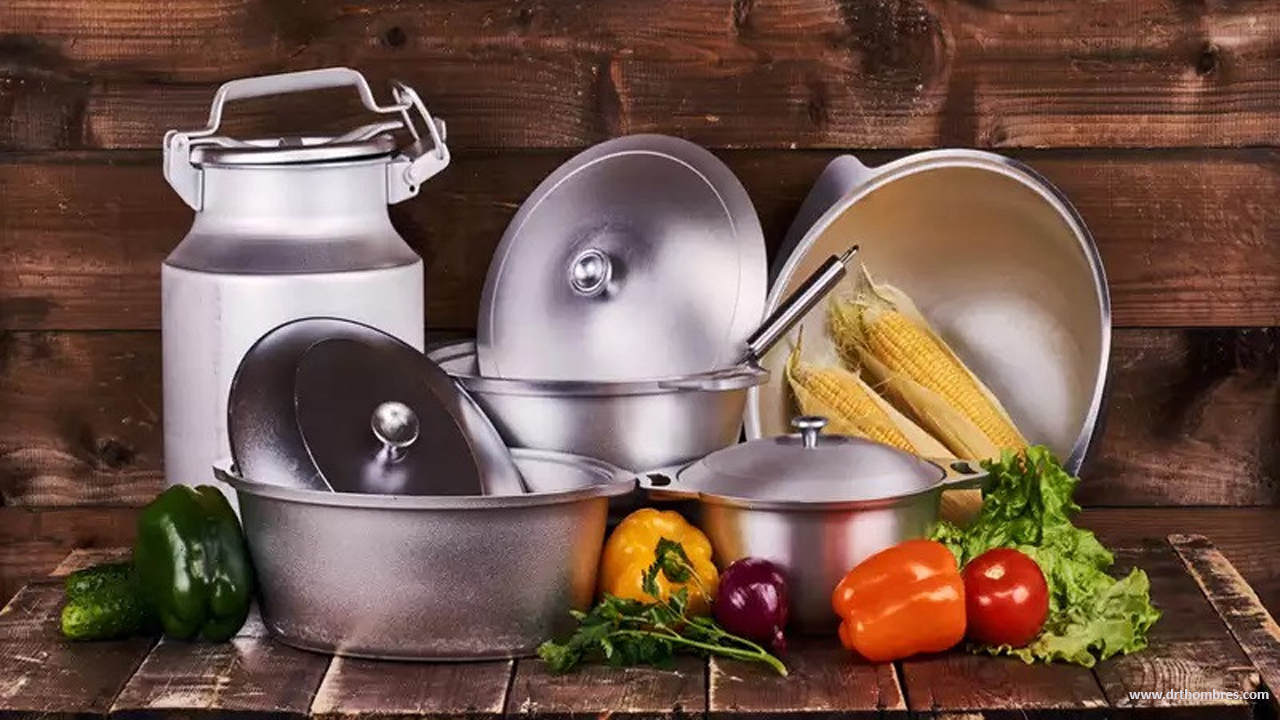Aluminium in its various forms is widely used in most households of India. It is being used as aluminium utensils for cooking or as a foil for food packaging. Its physical and chemical properties make it appropriate for use. But in recent studies, concerns regarding its safety were a big question as some recent evidence suggests that aluminium leaching from cookware and foils may cause illnesses such as anemia, dementia and osteomalacia. It is known that aluminium has a tendency to accumulate in tissues and organs, which may result in their dysfunction.
0.01-1% of orally ingested aluminium gets absorbed by the GI tract and excreted through the kidneys. But excretion is a big issue for patients with impaired renal functions. The Joint Food and Agriculture Organization (FAO)/WHO Expert Committee on Food Additives (WHO JECFA) established a provisional tolerable weekly intake (PTWI) of aluminium as 2 mg/kg body weight in 2011.
Specifications for aluminium laid down by BIS
The Bureau of Indian Standards (BIS) has outlined specifications for aluminium and aluminium alloy to be used for cooking utensils regarding material, thickness, fabrication, abrasion resistance and finishing. According to the BIS -
- Aluminium utensils used for cooking should have a high grade of smoothness which is obtained by a coating of aluminium oxide and anodizing the surface.
- The thickness of the coating should be 50-100 μm. The utensil should be smooth and continuous.
- Manufacturers should provide instructions for cleaning these utensils and consumers should abide by this for their better health.
While some studies suggest that cooking in utensils or aluminium foils may lead to toxic levels in the body, others suggest that it is safe to use.
Toxicity due to the leaching of aluminium into food while cooking in aluminium utensils depends on many factors such as pH, temperature, cooking medium, the composition of food, duration of contact/cooking and presence of fluoride, sugar, salt and organic acid. And this has been proven in studies.
Possible solutions to the problem
- Cooking utensils should be cleaned with soft materials and precautions should be taken to preserve the protective anodized layer.
- One should never use hard metallic scrub which can lead to erosion of protective coating.
- Avoid cooking at high temperatures as this can cause extensive leaching predisposing to aluminium toxicity.

 Aluminium in its various forms is widely used in many of our houses. The physical and chemical properties make it appropriate for use. While some studies suggest that cooking in utensils or aluminium foils may lead to toxic levels in the body, others suggest that it is safe to use. Here are some possible solutions to the problems.
Aluminium in its various forms is widely used in many of our houses. The physical and chemical properties make it appropriate for use. While some studies suggest that cooking in utensils or aluminium foils may lead to toxic levels in the body, others suggest that it is safe to use. Here are some possible solutions to the problems.










.jpeg)



.jpeg)

.jpg)





.png)





.jpg)
